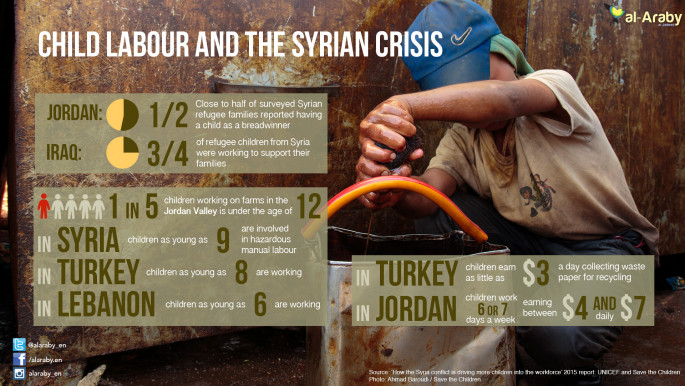Child labour on the rise as Syria crisis spirals
The conflict and humanitarian crisis in Syria is pushing an ever increasing number of children into exploitation in the labour market, according to a new report released by Save the Children and UNICEF.
Syria's civil war has killed more than 230,000 people and forced around half the population from their homes. The United Nations says close to four million have fled Syria as refugees, mainly to neighbouring countries that struggle to cope with the influx.
| As families become increasingly desperate, children are working primarily for their survival |
The report shows that inside Syria, children are now contributing to the family income in more than three quarters of surveyed households.
In Jordan, close to half of all Syrian refugee children are now the joint or sole family breadwinners in surveyed households, while in some parts of Lebanon, children as young as six years old are reportedly working.
The most vulnerable of all working children are those involved in armed conflict, sexual exploitation and illicit activities including organised begging and child trafficking, the report found.
“The Syria crisis has dramatically reduced family livelihood opportunities and impoverished millions of households in the region, resulting in child labour reaching critical levels,” said Roger Hearn, Regional Director for Save the Children in the Middle East and Eurasia.
“As families become increasingly desperate, children are working primarily for their survival. Whether in Syria or neighbouring countries, they are becoming main economic players” he added.
The report found that a spiralling number of children are employed in harmful working conditions, risking serious damage to their health and wellbeing.
“Child labour hinders children’s growth and development as they toil for long hours with little pay, often in extremely hazardous and unhealthy environments,” Peter Salama, UNICEF Regional Director for the Middle East and North Africa, said.
Three out of four working children surveyed in Jordan’s vast Zaatari refugee camp have reported health problems at work, according to the report.
A further 22 percent of children employed in the agricultural sector in Mafraq and the Jordan Valley have also been injured while working.
Moreover, children who work are more likely to drop out of school – adding to fears of a “lost generation” of Syrian children.
Things are likely to get worse as aid agencies cut back on programmes due to lack of funding, the report found.
The two agencies urged the international community, host governments and civil society to undertake measures to address the problem.
 |
|
| Child labour and the Syrian crisis: Click here for larger image |



